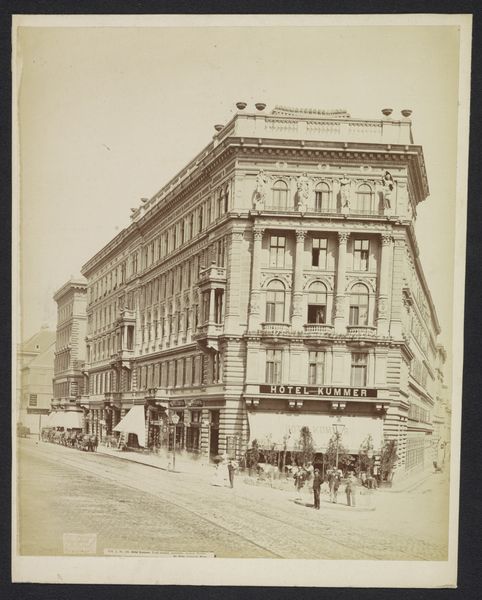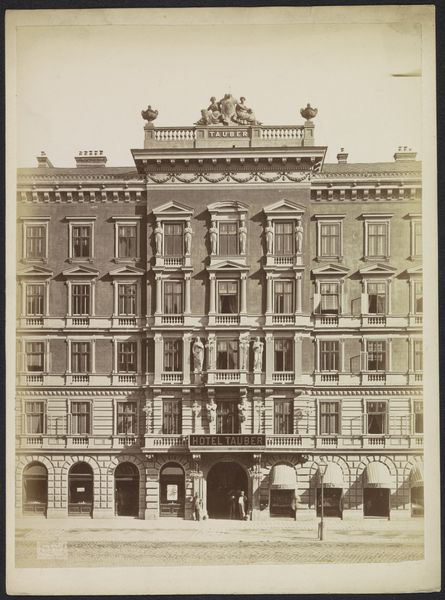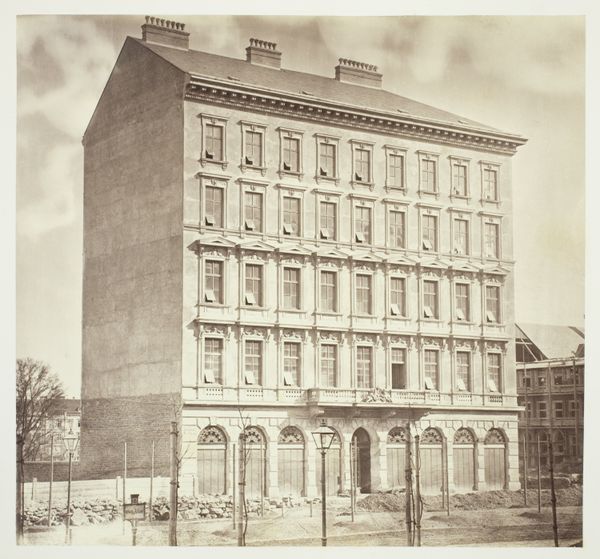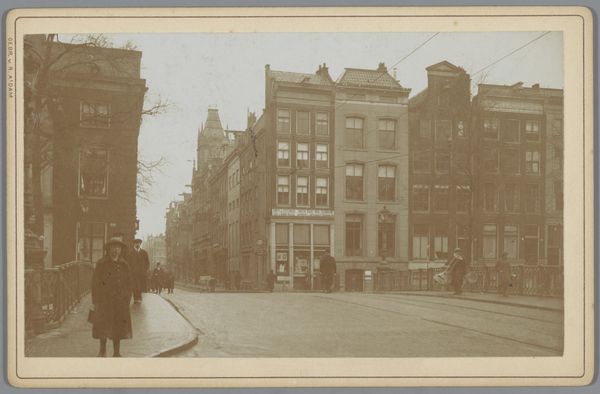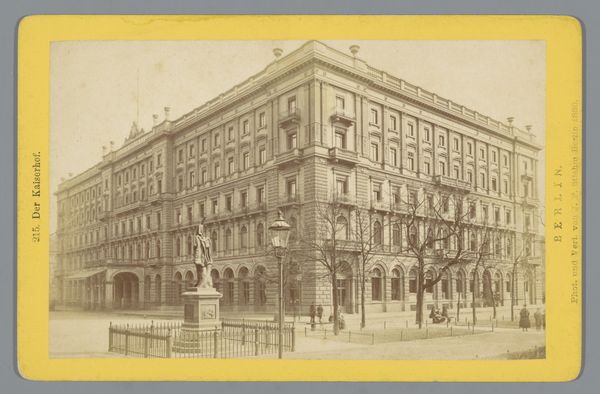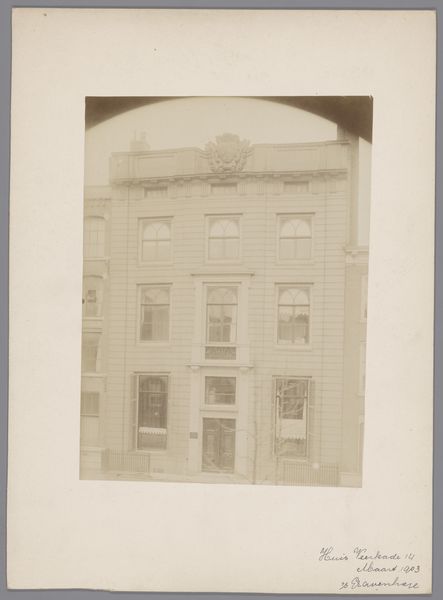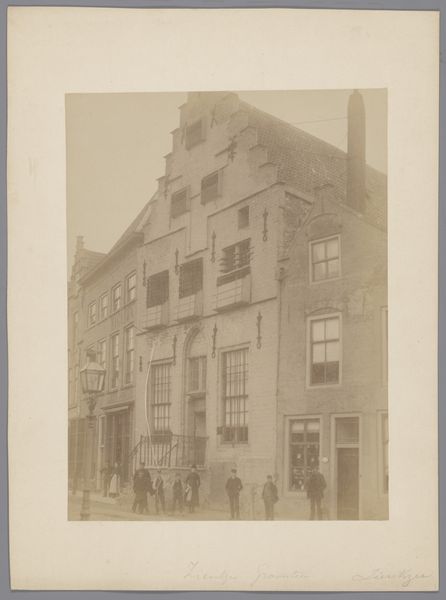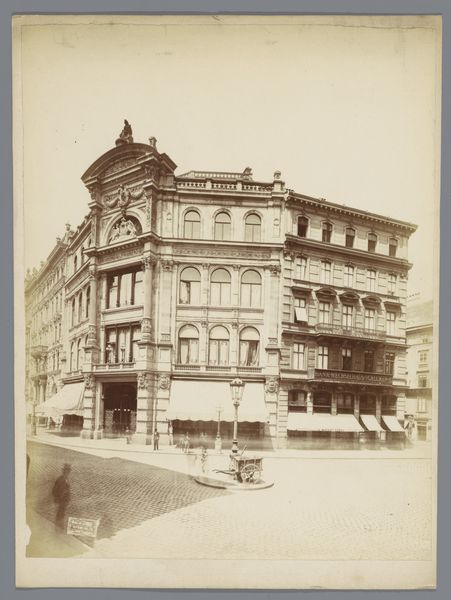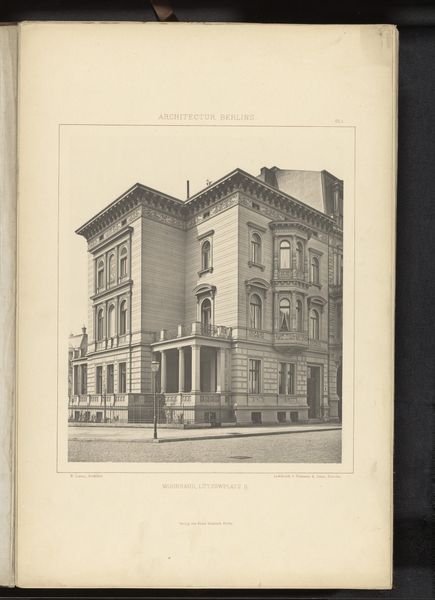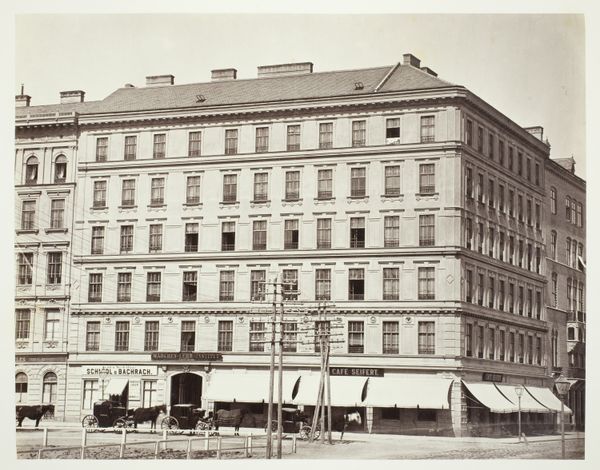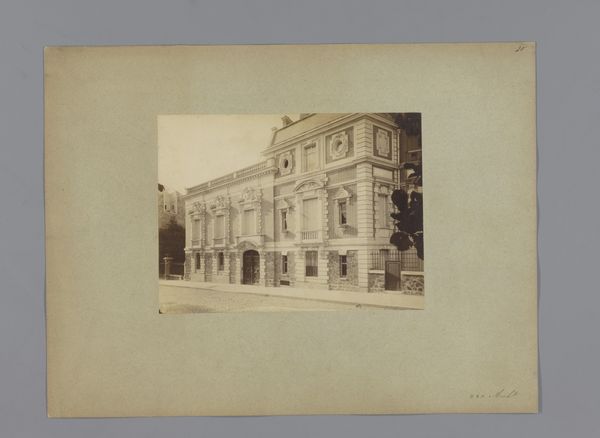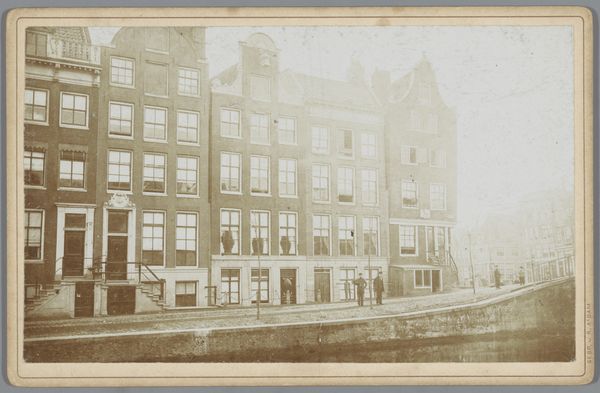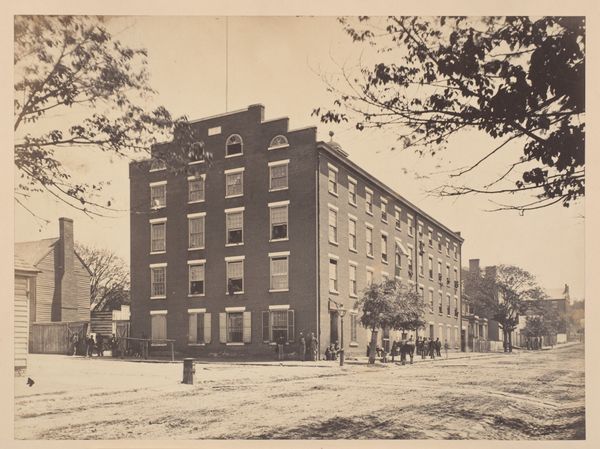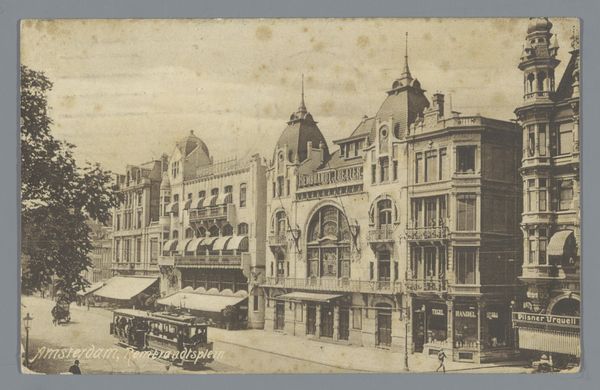
print, photography, architecture
#
dutch-golden-age
# print
#
street-photography
#
photography
#
cityscape
#
architecture
#
realism
Dimensions: height 100 mm, width 135 mm, height 108 mm, width 168 mm
Copyright: Rijks Museum: Open Domain
This photograph of houses on the Keizersgracht in Amsterdam, was made by an anonymous photographer in the 19th century using the wet collodion process, a method of capturing images on glass plates. The photographer would have coated a glass plate with a chemical solution, exposed it in the camera, and then developed it, all before the plate dried. The albumen print, made from an egg white emulsion, gives the image its sepia tone and smooth surface. This process, while revolutionary for its time, also reflects the era's social dynamics. Photography democratized image-making, yet the resources and knowledge required still positioned it within reach of the bourgeoisie. The photographer captured Amsterdam's elegant canal houses, showcasing the city’s urban landscape. The photograph’s material qualities - its tones and clarity - emphasize the city’s architectural details, and the social and economic structures that shaped it. Considering the materials and making of this image, we can appreciate how photography, with its chemical processes and mechanical precision, challenged traditional artistic practices, yet also mirrored the social and economic realities of the time.
Comments
No comments
Be the first to comment and join the conversation on the ultimate creative platform.
